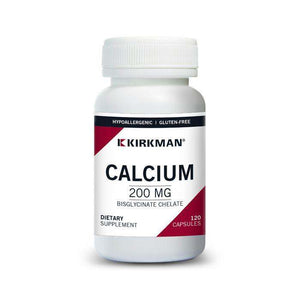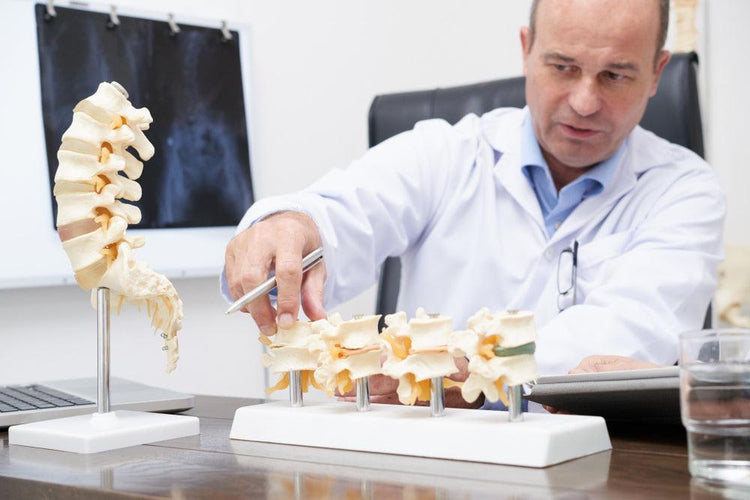
 Instagram
Instagram
Why does my neck crunch when I roll my head?
.png?v=1675869905230)

Related products

Our body produces weird sounds, such as gurgling sounds from the abdomen, snoring and whistles from the nose, etc. These sounds are very normal and often occur on a daily basis without any cause for concern.
Similar to these weird sounds, our joints also produce some noises called crepitus, which can be heard as a crunching sound. One of the areas that make the most of these crunching noises is our neck. We also hear it louder because the neck region is the closest to our ears. That's why sometimes if a person is not familiar with the situation, they may worry about whether it is wrong or not.
So the answer to the question of why our neck crunch when we roll our heads is that neck crunching is a natural sound produced during the movement of the head, and the theory behind this is that in our neck and all the other joints, gas bubbles are present in the fluid between these joints. These bubbles pop due to these movements and produce crunching sounds.
The phenomenon behind the crunching of the neck
Facet joints are located in the neck and are where cartilage is present. There is a fluid present between these articulating joints that keeps the balance and avoids compression if too much pressure is exerted. So when in the presence of this fluid, the other structures rub each other, which can produce these noises of crackling. So we can interpret that it normally occurs due to the popping of air bubbles trapped inside the joints' fluid and sometimes when ligaments and tendons change during movement.
We call them benign (mild or not trouble-causing) reasons. No difference in age or gender is present in it. Even if a young adult has no previous joint or muscle illness history, they may also have these neck crunching, crackling, and popping sounds. Sometimes, this cracking sound is followed by a feeling of relaxation afterwards, which many people find bizarre. The same popping of gas bubbles can suddenly occur in limb joints, so it is not a matter of clinical concern, and we can simply ignore it whenever it happens.
Read more: Osteoporosis: Risk factors, symptoms and treatments.
Is neck crunching always normal?
Neck crunching is normal but not an everyday condition, so when you notice something unusual or the frequency of the situation increases, this is when you should be concerned. If you notice any signs of pain and swelling, you'll know whether it's time to go to the physician. It may be due to joint injury, arthritis, and poor posture during sleeping at night. It can be differentiated from normal neck crunching, leading to continuous pain, and sometimes swelling which worsens the situation. These problems may be treated first using pain medication, anti-inflammatory drugs, etc before a doctor gets involved.
How to diagnose and treat abnormal neck crunching
Several techniques and machines are available to check where the disturbance is and can help to give an idea of what's happening inside our bodies.
If you're experiencing continuous and intense pain, you'll need to seek urgent treatment. Physical therapy is the go-to treatment protocol in this scenario.
Between normal and problematic neck crunching, the difference is clear that the latter will be accompanied by signs of pain and swelling, telling that an emergency needs to be handled as soon as possible. It depends upon the previous conditions that led to the pulling of muscle or any kind of inflammatory response in the neck region.
Read more: What is Adcal-CCP antibody?
How can abnormal neck crunching be dealt with?
Heat and stretching can alleviate the pain. But this can only be supportive care for a short time. However, if the problem is out of hand, physiotherapy is a better approach to relaxing the muscles and improving discomfort.
Posture exercises can also be used to rectify the situation.
Is it reasonable to voluntarily do neck crunching?
As stated earlier, neck crackling can be satisfying afterwards for some people. Often it is not only neck cracking but also knuckles, fingers and back crackling that can provide a sense of relief, which causes some people to develop it as a habit. Although it is a harmless movement, frequently doing it and sometimes with the greater force exerted unconsciously, can be very risky for that person. The situation is not very common but people should be aware that arteries and nerves are present in the spine, which can be pressed or penetrated if cracked or moved incorrectly which may cause severe threats to life.
Conclusion
Neck crunching is generally not problematic and can be ignored easily until the noise is accompanied by any other sign, like pain or swelling. When these unusual signs are encountered, it's time to worry about it and immediately consult any good physician or physiotherapist.
































 Rated Excellent by 26,523+ Reviews
Rated Excellent by 26,523+ Reviews